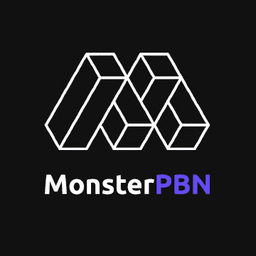How Oleg Malkov Made $480K Selling Website Templates


Business Description
Table of Contents
Navigate through the case study sections
Executive Summary
Case Study Content
Turning SEO Skills into Digital Products
Oleg Malkov spent years delivering SEO services before realizing the limits of client work. In 2014 he tried selling heavy machinery leads online, but an economic slump drained his savings and forced him into a modest bungalow in Thailand.
Short on cash, he pivoted to freelancing, tackling everything from SEO audits to business card designs. Over eight months, leftover project income and new gigs added up to $12,000. He calculated that with savings and minimal expenses he could dedicate six months to finding a scalable niche.
Discovering ThemeForest
A quick search led him to ThemeForest, where top authors made $100K+ selling templates. Confident from building sites, Oleg formed a small team: two designers, two front-end devs and rotating programmers. He launched his first HTML template, only to learn WordPress theming and page builders required a very different workflow.
Grinding Through Moderation
Each submission faced 5–20 errors on code quality, security and design standards. After 18 rejections and dozens of fixes, his first theme was finally approved. The first sale at $59 netted $29.50, proof the model could work. Within the first month, five more sales brought net revenue to $8,750.
Scaling and Snags
Early wins motivated Oleg to launch two more templates, but hiring mismatches and mounting living costs in Thailand slowed progress. By year’s end, only four products were live, and revenue plateaued. High interest loans, team churn and thin 50% margins made further growth untenable.
Building an Assembly Line
In late 2019, he sketched an assembly-line workflow, raised $35K from two backers, and formalized training, code reviews, and art direction. This system boosted quality and throughput. During the COVID-19 lockdown, seventeen new templates launched, pushing monthly revenue to $6,500 plus $7,500 in custom support work.
Exit and Return to SEO
By late 2020 competition and platform rules capped gains. He listed the automated template business on Empire Flippers, negotiated past a $210K valuation limit imposed by ThemeForest’s transfer rule, and sold it for $180K. After fees and bonuses he funded a Thailand apartment purchase. He then refocused full-time on SEO, co–founding MonsterPBN to provide premium PBN domain services.
Key Takeaways
- 1Leverage existing skills to enter scalable online marketplaces rather than relying only on client work.
- 2Expect multiple rounds of platform feedback, plan time for code and design revisions before launch.
- 3Invest in a blend of specialized hires and strong process documentation to maintain quality at scale.
- 4Automate repetitive tasks, use clear checklists and CI/CD to streamline theme development.
- 5Monitor market trends, lockdown-driven entrepreneurship can boost template sales significantly.
- 6Track metrics closely and plan an exit when growth plateaus to maximize returns and fund new projects.
Key Facts
Tools & Technologies Used
Premium Content Locked
Subscribe to access the tools and technologies used in this case study.
Unlock NowHow to Replicate This Success
Premium Content Locked
Subscribe to access the step-by-step replication guide for this case study.
Unlock NowInterested in Being Featured?
Share your success story with our community of entrepreneurs.
Explore More Case Studies
Discover other inspiring business success stories

How Valor.Bet & Valor.Casino Built a $1.23M Custom Online Casino
Valor.Bet & Valor.Casino built a custom online casino MVP in nine months with an $1.23M budget. CEO Danil Fokin assemble...
Valor Partners

How Joe Pulizzi Turned The Tilt Into a Six-Figure Exit in Just 24 Months
Joe Pulizzi, a pioneer in content marketing, launched The Tilt during the COVID-19 pandemic as a resource for content en...
The Tilt

How Jamie I.F Turned One Niche Site into $30K/Month with SEO
Jamie I.F launched his first SEO-driven niche site during university, wrote every article himself for months, then outso...
Affiliate SEO Niche Sites